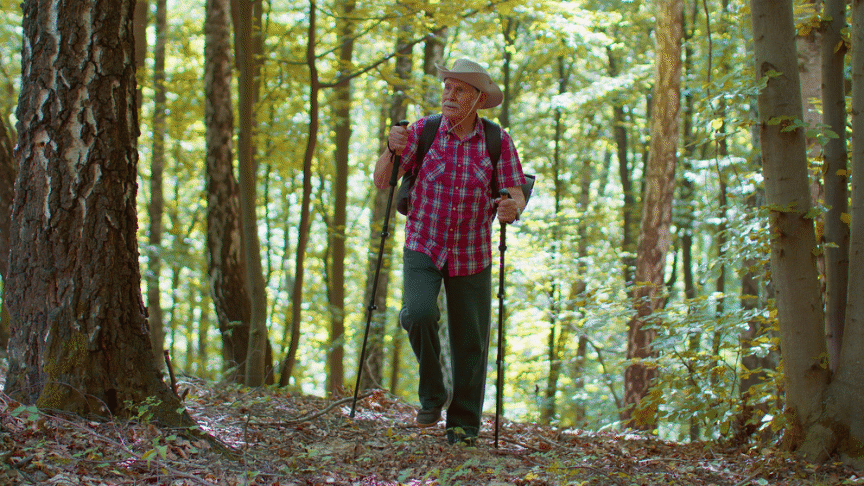
Some people dread the idea of aging. Others relish the experience and wisdom that come with getting older. Either way, it’s an inevitable fact that we’re all getting older. Sometimes, living on the road reminds us of this fact.
Aging has many benefits, such as caring less about what others think and having more emotional intelligence. Older adults also excel at jobs that can be cognitively taxing for younger folks. However, advancing age does take its toll, particularly on our hearing, vision, and physical endurance. These losses are expected and just a fact of life.
The more we can anticipate common age-related changes, the better we can reduce our risk of injury and get the most out of life on the road. When we become more aware of these inevitable—but gradual—changes, the easier it is to find innovative ways to make up for them.
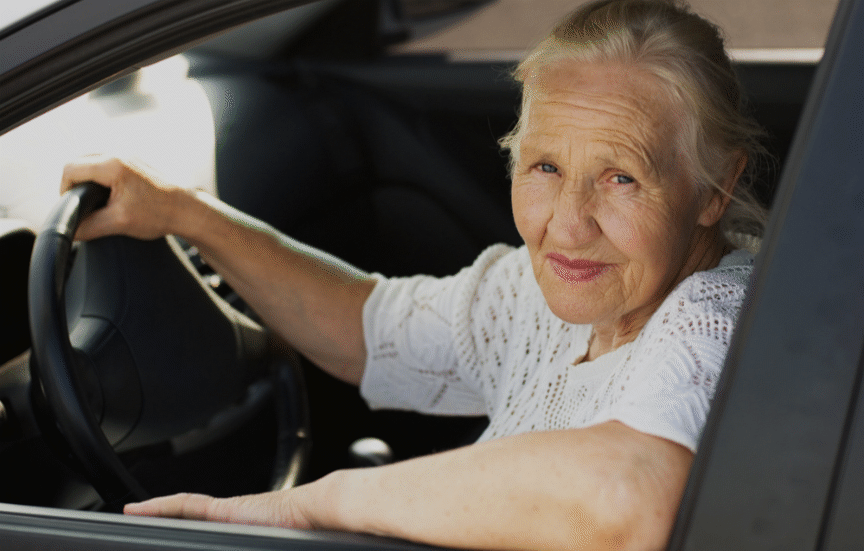
Reduced Physical Endurance
Muscle strength and physical endurance decline with age, but that doesn’t mean an end to hiking challenging trails or getting on top of the RV to fix a leaky roof. Instead, the key is to be more efficient and find safer ways of doing things when your muscles are involved. For example, you can make adjustments to your rig or outdoor area to make bending, stooping, climbing, or other movements less strenuous.
Mobility Issues
Camping with limited mobility, hip problems, bad knees, or other physical challenges can be concerning for people of any age, but more so as we age. Fortunately, there are plenty of workarounds that can help you enjoy your nomadic life, despite your physical issue.
If ramps or bathrooms with large stalls or handrails make camping easier for you, take the time to research campgrounds that offer these and other accessibility features. It also pays to call ahead to ensure a campsite has what they advertise. Another strategy is to find sites that put you close to the things you want to see, such as a mountain lake or a beautiful sunset. If you enjoy hiking, try to find a spot close to a trailhead.
Regardless of your physical abilities, it’s always a good idea to know your limits so that you can plan your trips accordingly. Some days might be harder than others. If you need a rest day, take it. If you’re not up to hike that you originally planned, do something else that is lower impact.
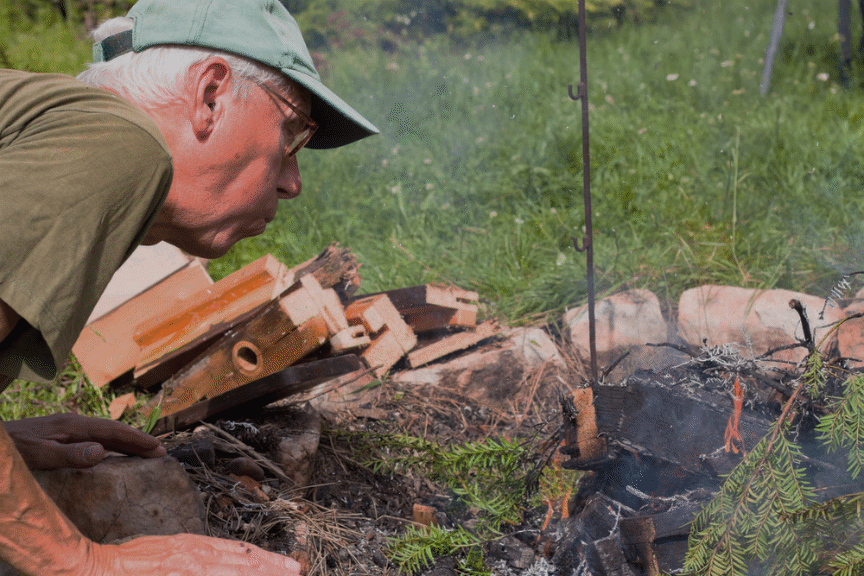
Longer Recovery from Injuries
The older we get, the more time we need to heal from sprains or falls. Being more aware of your physical surroundings can go a long way to avoiding accidents. In areas with limited visibility, use lighting to find your way around so that you don’t trip over unseen obstacles. Take advantage of handrails when using stairs or steps to avoid nasty falls.
Reduced Short-Term Memory
With age, we might forget things more often, and our memories might not be as sharp as they used to be. Usually, this is little cause for concern—unless you forget a crucial step in hitching your trailer. A simple lapse like that can be costly and dangerous. A simple way to keep disasters to a minimum is to create checklists and keep them handy for quick reference. Although your memory might still be sharp, removing the worry is worth it.
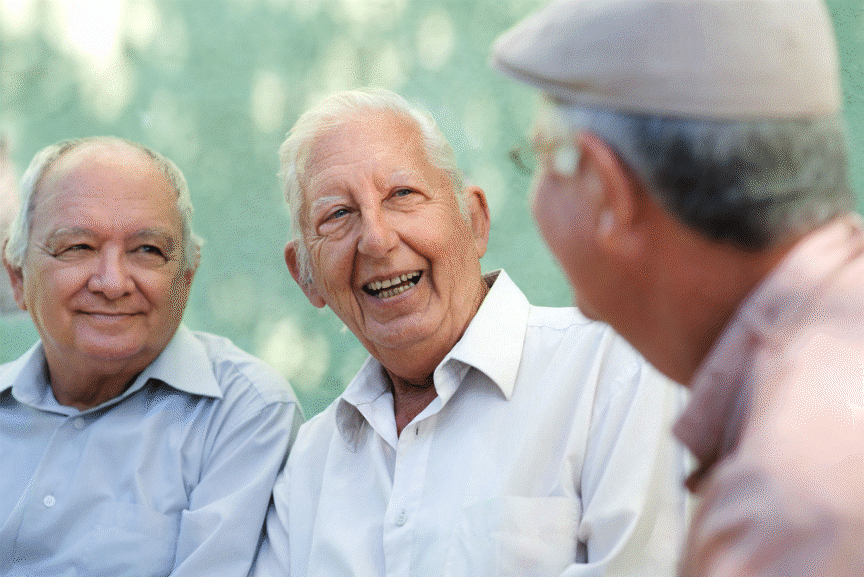
Risk of Chronic Conditions
The older we get, the greater our risk for chronic health issues like obesity, heart disease, diabetes, arthritis, and high blood pressure. Most of us know that eating healthy can preserve lifelong health. Also, take opportunities to get in as much physical activity as possible. Handling the day-to-day of nomadic life—setting up camp, emptying water tanks, leveling an RV—often provides plenty of exercise.
Medical intervention is necessary when diet and exercise aren’t enough. Living and working on the road doesn’t mean you have to go without proper healthcare, especially when managing a chronic condition. Old and young nomads alike can do several things to meet their medical needs:
-
- Use a centralized provider that has all your medical records.
- Plan trips around doctor visits and regular screenings.
- Get your prescriptions filled at national pharmacy chains like CVS or Walgreens.
- Order your prescriptions in 90-day supplies to take some of the hassle out of refilling them.
- Look into local free clinics or medical facilities that charge on a sliding scale.
- Whenever you get to a new camp or boondocking area, locate the nearest hospital or clinic in case you have an emergency later on.
- Take time to familiarize yourself with your health plan thoroughly, whether it’s private insurance, Medicare, or another program.
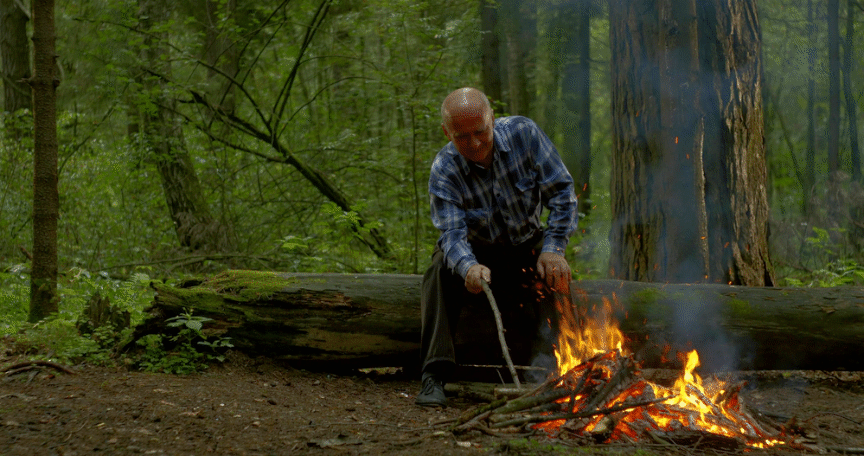
Age should never be an issue when living your best life on the road. The only exception is a medical or physical constraint that makes traveling too difficult or dangerous. Otherwise, the nomadic life is a great adventure for young and old alike. Being mindful of the natural transitions we go through with aging can help us maintain optimal health, reduce hazards, and enjoy the freedom we’ve always dreamed of.
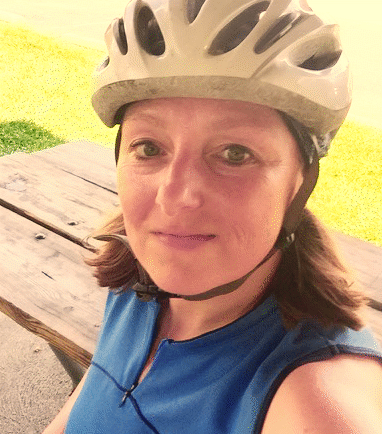
Juliann Scholl is a freelance writer and part-time nomad who craves new sites, people, or wherever her Honda Element takes her. A grown-up farm kid, Juliann loves living, working, and playing outdoors.

Thank you.
All good advice.
It stinks but I can always plan on ending it if it becomes more dreadful ,but for now I’m still standing and pissing others off life is a hoot
Keep up your sense of humor I know that, will save and nourish me!
Thank you for your informative article.
❤️❤️❤️
re — autophagy
.
I turn 70 in a few weeks.
For my health, I fast.
I am in my second two-week fast this month.
.
Fasting probably is not ideal for every body.
I suggest you read about different types of taste, ask around.
.
For my body, I want to avoid macular degenerate.
It blinded one of my parents at 72… although the rest of her body kept functioning another couple decades.
.
A major part of my identity is mobility.
Blind, stuck inside a stand-still house, is low on my list.
I’d like to see this article written by a nomad in their 70s or 80s…
I agree. I’m 81 and most of this article is common sense that we already follow. What about “aging well”? Our poor food choices? Our sedentary lifestyle? These things age us fast.
That is exactly what stopped my cocky attitude at 72. Poor diet. Stressed and misery led me, now with a iron deficiency and I sprained my foot badly for two month, cuz I was RUNNING off a step .. I use to hate it when young.. but” act your age”, no it doesn’t mean I am dead, just slow the hell down and enjoy life . Take good care to eat right, exercise and get enough sleep .. quit being angry & depressed.. play my harmonica!!! Play my recorder!!!! And hell let’s enjoy this!
Hello Colleen, I am sorry to hear about your Iron problems I also have Iron problems. I at times have to get IV Iron infusions and I am also deathly allergic to Iron a few times I have become close to dying because of my chronic problems with Iron or the lack of Iron.
My iron has dropped to only 8 before and I have lost 90 points in a 24 hour time period. I have a lot of hemophiliac problems and a rare blood type but it is not one of rarer blood types and I am thankful for that. I have to be in contact and care of a hemophtoglist at all times.
Colleen I do understand and do wish you well. Regards Hope
Colleen, your post spoke to me! I’m 63 (planned to go on the road 12 years ago when I first began to follow Bob, but after 9 months in my van, I accidentally got married to my love of 30 years and now I’m stuck until we can both go). I think about this aging-on-the-road thing a lot as I hike alone and also run and hop around like a kid (just to prove to myself that, nah, I’m not that stiff), but both my parents are in their 90s and I see the changes a-coming. I have seen how one misstep can haunt you for a good, long while. So, yeah, I guess we have to act our age (because we’re supposed to be wiser, right?) and still have fun, eat well, sleep well, chill the heck out…sing… I love all your advice! And I recently took up the ukulele. Calling the expense a preventative medical cost. Happy trails!
I invite everyone to contribute articles on this and other topics. editor.crvl@gmail.com
Age is inevitable. Keep doing all you can, wherever you are to fight it. Moving your body every day is a key ingredient and doing thing you like from biking to cooking. Try to keep your mind sharp and tell yourself YOU CAN DO IT. To me, age is a number because it’s all about how you feel and how you can manage your day to day life and take adventures.
I am an about half time, widowed nomad in my early 70’s, with a couple of chronic issues I must manage at home and when traveling.
I do most of the tasks recommended in this article.
I keep a list of medications and Doctor’s phone numbers behind my drivers license in my wallet.
I also have an emergency button on my phone that can be activated without it being unlocked, and pressing it simultaneously calls 911 and my emergency contact.
Hello WR I am 73 and COVA stopped me from traveling and now my husband is fading. Expect to be able to get on the road about 6 months from now and I’ll be 74. So you manage aging issues – medications, etc? I also, have an issues that needs meds each days to mgr health. Do you belong to a woman’s group? I’d like to find out the numbers of ‘senior’ ladies out there.
I have all my prescriptions at Walgreens, and fill them around the country, wherever I am.
You can also walk into any pharmacy with your prescription bottle, they can transfer it there and fill it.
I don’t belong to any womens groups, but can tell you there are LOTS of women out there traveling by themselves.
I am seeing more and more women in vehicles rather than RV’s, which reflects the activity and interest we see from solo women here.
I embrace getting older and my inevitable slowing down that it necessarily implies. On the other hand, it scares the hell out of me! Thanks for raising this topic.
I’m 76 and been full timing for over 3 years —- in a 13′ Scamp. I’ve had both knees replaced, dealing with high blood pressure, have a bad back, just to name a few of life’s little “issues”. I’m having the time of my life enjoying this beautiful country. I camp host in the summer months and your the South in the winter. Life is good— get out there and enjoy it.
Thanks
I am 72 years old and am enjoying this life immensely. Every sun rise, every sun set, whether magnificently colored or magnificently promising, calms and brings that joy unspeakable and filled with appreciation. Yes. I am old. No. I refuse stix and brix as a home. This van, the potential of beautiful vistas, and the caravans of like minded nomads, is my best life. I live with physical limitations in mind but there are no limitations to my joy. Thank you to Bob, Suanne, and Howas growing number of workers. You are making my golden years priceless
I have a lot of major Health conditions I am 62 had to retire Early . I will comment about aging efficiently I use one rule so that I can do what I Want. When I cant do something I want I find a creative way to overcome it. I haven’t been stopped yet. I appreciate this article but because it was written by a young whipper snapper stating the obviously because they are you and don’t get it ! So readers lest hear about how you overcame a stopper by using you wise Ingenuity!